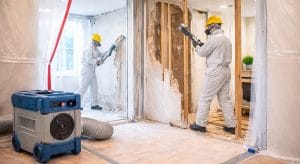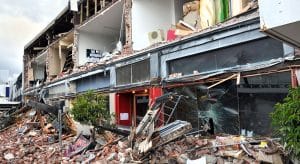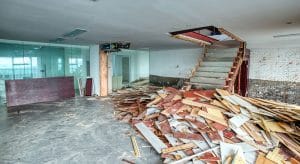Many industries are looking for ways to be eco-friendly, as more people see that pollution is harming our health, destroying habitats and throwing the planet off balance.
Unfortunately, the building sector is one of the biggest culprits, when it comes to waste generation.
Globally the construction industry is responsible for at least one third of the world’s solid waste and total greenhouse gas emissions.
Australia’s hands aren’t clean either.
Construction and demolition businesses across the nation generated 27 million tonnes of waste in 2018-19, according to the National Waste Report. This is a whopping 44 per cent of all the waste in our country, which is nothing to sneeze at!
Construction and demolition waste includes:
- General rubbish on the site
- Rock, soil and other excavated material
- Contaminated soil
- Hazardous substances such as asbestos
- Asphalt waste
- Brick
- Concrete
- Insulation materials
- Plastic
- Wood and gypsum
- Timber
- Vegetation
- Plasterboard
A few obstacles to effective demolition and construction waste management:
Many people in the construction sector have good intentions and want to do more to help the environment, however there are often wider systemic challenges to overcome.
Governments fail to sufficiently expand Australia’s waste management facilities:
Australia can no longer rely on China to accept our materials for recycling, after China restricted waste imports in 2017. This threw a major spanner in the works for waste management across the nation, as we used to export billions of dollars’ worth of recyclables every year.
Since then, Australia has had to expand its own recycling and waste management facilities, but hasn’t effectively done so. We don’t have enough robust systems in place to sustainably handle general waste, let alone construction waste that’s more complicated to deal with.
There’s also been backlash to at least one case where the government tried to take action.
Recently there was strong community opposition to NSW plans to build a Gunnedah plant that processes and recycles construction waste. Locals didn’t want the facility in their backyard, however there’s significant need for Australia to expand its capacity to process construction waste ethically.
“At present, the greater Sydney region, in particular, is already facing pressure as non-putrescible waste streams continue to grow in line with construction activity and major infrastructure projects. While in the longer term these levels of waste may be proportionately reduced with better recycling methods, the pressures of continued population growth, urban development and infrastructure programs will continue to create large ongoing waste streams.” Environmental impact statement for the Gunnedah project.
Lack of clear legislation:
There are already compulsory waste levies for construction companies in many parts of Australia, but some experts question how effective this is. At any rate, it clearly isn’t enough.
This is why some sectors are taking matters into their own hands by introducing policies that make manufacturers responsible for their own waste products, and they’re seeing positive results too. For example, CSR Gyprock collects offcuts and demolition materials as part of its take-back scheme. This helps contractors to reduce their plasterboard waste, as the material is guaranteed to be completely recycled.
The problem is that such schemes rely on construction companies taking the initiative themselves, by adopting an extended producer responsibility (EPR) policy. On a national scale, there are no EPR-driven legal instruments or regulations around this.
Australia would benefit from introducing EPR schemes and laws that hold companies accountable and provide financial incentive for all levels of the supply chain.
Resistance to change within construction businesses:
It can be difficult for builders to embrace sustainable changes if they’re working under pressure or struggling to stay afloat in this competitive industry. There are also logistical challenges on small sites that don’t have enough room, so all waste is mixed into one bin (even though it’s meant to be separated into metals, plastics and so on).
Dr Nilupa Udawatta, a lecturer of construction management at Deakin University, says that people who hire builders often have little influence over waste management on the site. Adding to this, the industry can be quite fragmented.
“In the traditional arrangement, there is a lack of coordination or communication between builders, contractors and subcontractors, so it’s hard to implement [waste management plans],” Dr Udawatta told Renew Magazine.
We need to tackle this issue from different angles:
Governments, construction companies, suppliers, waste producers, waste operators and the wider community need to work together to make systemic changes that tackle construction waste.
At the heart of it, Australian governments need to develop more recycling infrastructure, but there also needs to be incentive for companies to recycle. We need renewed focus on a circular economy that benefits businesses, society and the environment – by connecting different industries and making it profitable for companies to recycle and ethically dispose of waste.
Benefits of sustainable construction waste management:
- Lower construction costs due to using materials more efficiently
- Higher profits (especially as more consumers seek out companies that care about the environment)
- Lower risks of material contamination
- Helping the environment
Spotless Demolition is committed to eco-friendly demolition:
Spotless Demolition provides safe and efficient demolition services in NSW. We’re committed to the ethical disposal of construction, household and business waste. Our team ensures that everything is disposed of correctly, following government regulations. And we leave no mess behind!
Contact us on +1300 128 970 or fill out this form to find out more about our services.






